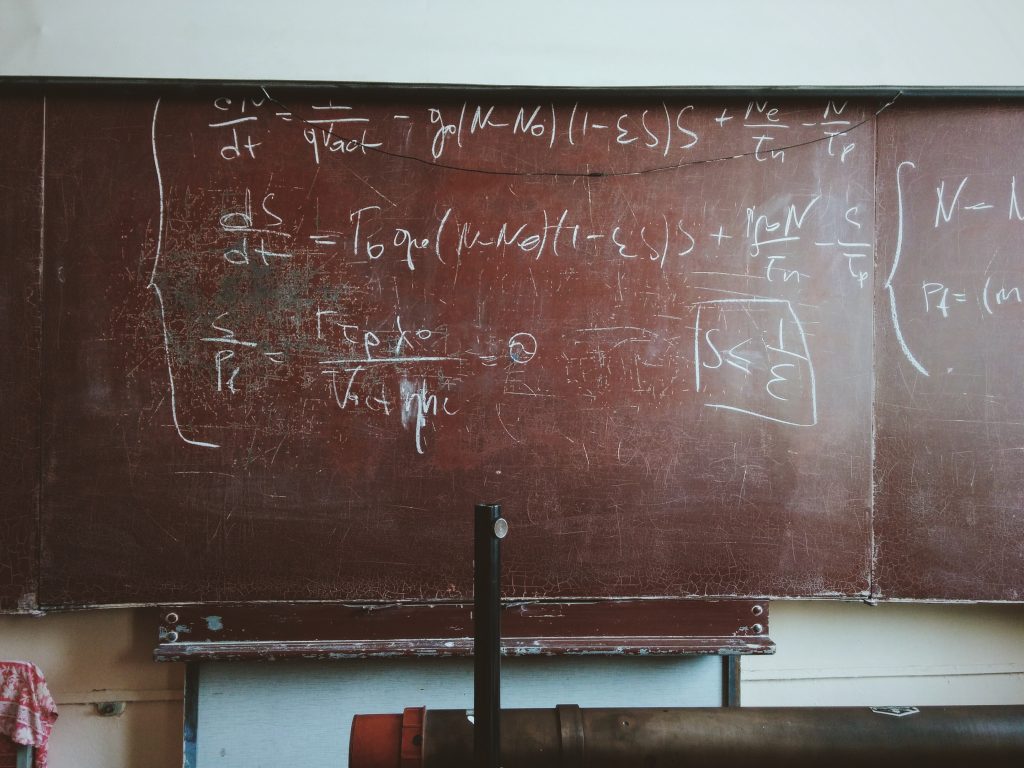Video | The Feynman Technique
Photo by Roman Mager on Unsplash
A Técnica de Feynman é um método de aprendizagem que leva o nome de Richard Feynman. Nesta técnica, uma pessoa explica o conceito que está aprendendo para si mesma de uma forma simples para encontrar lacunas em seu conhecimento.
A técnica de Feynman é um modelo mental para transmitir informações usando pensamentos concisos e linguagem simples.
Supostamente, também Albert Einstein usava esta técnica.
A técnica consiste em quatro etapas:
- Escolha o assunto para estudar
- Finja explicar a uma criança
- Preencha as lacunas de compreensão expostas na etapa 2, retornando às fontes
- Simplifique a explicação
Fonte: Wikipedia
| Audio | |
|---|---|
Normal | Slow |
| English Transcript | Tradução |
| Feynman learning technique is effective for learning something new, deepen your understanding of what you already know or helping you study for an exam. | A técnica de aprendizado do Feynman é algo efetivo para aprender totalmente algo novo, aumentar seu entendimento do que você já sabe ou te ajudar a estudar para uma prova. |
| The first step is to pick a topic you want to understand and start studying it. | O primeiro passo é pegar um tópico que você queira entender e começar a estudá-lo. |
| Once you know what it is about, take a piece of paper and write about it as if you're teaching the idea to someone else. | Uma vez que você saiba tudo sobre ele, pegue um pedaço de papel e comece á escrevê-lo, como se você estivesse ensinando a ideia para mais alguém. |
| Ideally write and speak at the same time just as a teacher does it at the blackboard. | O ideal é escrever e falar ao mesmo tempo, da mesma forma que um professor faz na lousa. |
| This makes you realize which part you understand and where you still have gaps. | Isso faz você perceber o que você está entendendo e o que não está. |
| Whenever you get stuck go back to study and repeat that process until you have explained the whole topic from start to end. | Caso acabe se travando, volte aos estudos e repita o processo até que você tenha explicado todo tópico do começo ao fim. |
| When you're done, repeat the process from the beginning, but this time simplify your language or use a graphic analogy to make a point. | Quando você terminar, repita o processo do começo, mas dessa vez simplifique sua linguagem ou use uma analogia visual para entender. |
| If your explanation ends up wordy or confusing, you probably have not understood it well enough, so you should start again. | Se sua explicação terminar bagunçada ou confusa, provavelmente você ainda não entendeu bem o suficiente, então deverá recomeçar. |
| Thinking about an idea by explaining it makes this learning method very effective. | Pensar sobre uma ideia explicando-a, faz esse método de aprendizado bem efetivo. |
| Once you can explain an idea in simple language you have deeply understood it and will remember it for a long time. | Uma vez que você consiga explicar a ideia de forma simples, você a entendeu profundamente e vai se lembrar por muito tempo. |
| Richard Feynman was a leading theoretical physicist who received a Nobel Prize for his work in quantum electrodynamics. | Richard Feynman foi um físico teórico que recebeu o Prêmio Nobel por seu trabalho em Eletrodinâmica Quântica. |
| He was notorious for asking his fellow mathematicians to explain concepts in simple language to test their understanding. | Ele era conhecido por pedir a seus colegas matemáticos para explicar conceitos em uma linguagem simples, para testar sua compreensão. |
| Thanks for watching. | Obrigado por assistir. |
| Also check out others Sprouts learning techniques as they can complement the methods explained in this video. | Também veja outras técnicas de aprendizado do Sprouts e como elas complementam o método explicado no vídeo. |
| Please use the comments below to give us feedback or tell us which of the techniques is your favorite. | Por favor, use os comentários para nos dar um feedback ou nos dizer qual das técnicas é sua favorita. |
Contagem de palavras
A tabela abaixo exibe as palavras encontradas neste vídeo bem como o número de vezes em que aparecem.
Veja também: Para que serve esta tabela?
| Freq. | Palavra | Freq. | Palavra | Freq. | Palavra |
|---|---|---|---|---|---|
| 13 | you | 10 | the | 9 | to |
| 8 | it | 8 | a | 6 | for |
| 6 | and | 4 | your | 4 | this |
| 4 | or | 4 | learning | 4 | is |
| 4 | in | 4 | have | 3 | time |
| 3 | start | 3 | of | 3 | language |
| 3 | idea | 3 | as | 3 | an |
| 3 | about | 2 | you're | 2 | write |
| 2 | which | 2 | what | 2 | was |
| 2 | use | 2 | us | 2 | understood |
| 2 | understanding | 2 | understand | 2 | topic |
| 2 | techniques | 2 | study | 2 | simple |
| 2 | repeat | 2 | process | 2 | once |
| 2 | makes | 2 | know | 2 | if |
| 2 | his | 2 | from | 2 | feynman |
| 2 | explained | 2 | explain | 2 | effective |
| 2 | can | 2 | at | 1 | work |
| 1 | wordy | 1 | will | 1 | whole |
| 1 | who | 1 | where | 1 | whenever |
| 1 | when | 1 | well | 1 | watching |
| 1 | want | 1 | video | 1 | very |
| 1 | up | 1 | until | 1 | thinking |
| 1 | they | 1 | theoretical | 1 | their |
| 1 | that | 1 | thanks | 1 | test |
| 1 | tell | 1 | technique | 1 | teaching |
| 1 | teacher | 1 | take | 1 | studying |
| 1 | stuck | 1 | still | 1 | step |
| 1 | sprouts | 1 | speak | 1 | something |
| 1 | someone | 1 | so | 1 | simplify |
| 1 | should | 1 | same | 1 | richard |
| 1 | remember | 1 | received | 1 | realize |
| 1 | quantum | 1 | probably | 1 | prize |
| 1 | point | 1 | please | 1 | piece |
| 1 | pick | 1 | physicist | 1 | part |
| 1 | paper | 1 | out | 1 | others |
| 1 | notorious | 1 | not | 1 | nobel |
| 1 | new | 1 | methods | 1 | method |
| 1 | mathematicians | 1 | make | 1 | long |
| 1 | leading | 1 | just | 1 | ideally |
| 1 | helping | 1 | he | 1 | graphic |
| 1 | go | 1 | give | 1 | get |
| 1 | gaps | 1 | first | 1 | fellow |
| 1 | feedback | 1 | favorite | 1 | explanation |
| 1 | explaining | 1 | exam | 1 | enough |
| 1 | ends | 1 | end | 1 | else |
| 1 | electrodynamics | 1 | done | 1 | does |
| 1 | deeply | 1 | deepen | 1 | confusing |
| 1 | concepts | 1 | complement | 1 | comments |
| 1 | check | 1 | by | 1 | but |
| 1 | blackboard | 1 | below | 1 | beginning |
| 1 | back | 1 | asking | 1 | analogy |
| 1 | also | 1 | already | 1 | again |









